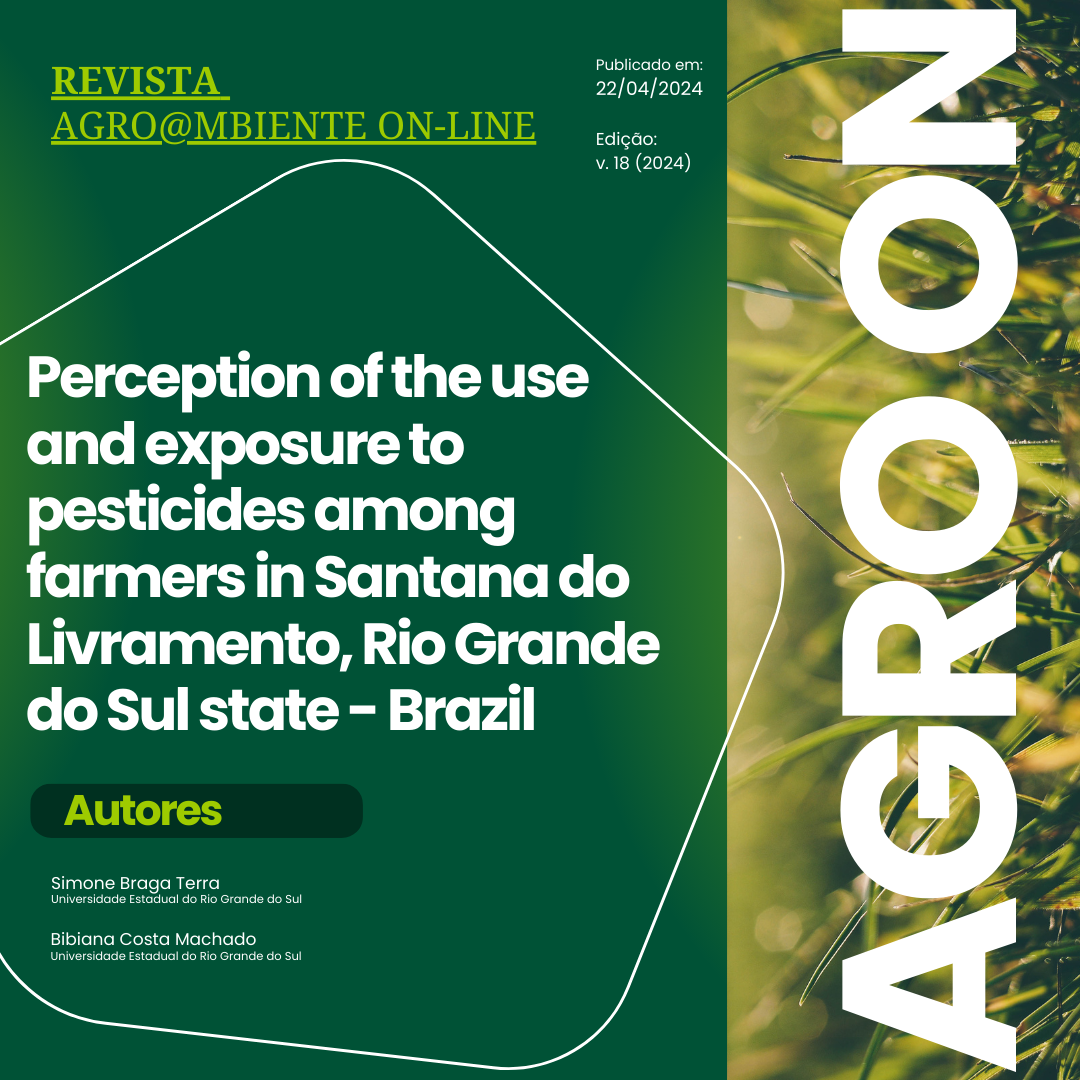Perception of the use and exposure to pesticides among farmers in Santana do Livramento, Rio Grande do Sul state - Brazil
DOI:
https://doi.org/10.18227/1982-8470ragro.v18i00.7962Keywords:
Agrochemicals. Pesticides. Intoxication. Rural workers.Abstract
The majority of farmers in Brazil have a low level of education, which makes it difficult for them to read and understand pesticide labels and can result in poisoning during field applications. The aim of this study was to verify the perception of farmers and rural workers in the district of Santana do Livramento, Rio Grande do Sul - Brazil, concerning the use of and exposure to pesticides, as well as the damage caused to their health and the environment. Thirty-one farmers who make use of pesticides on their property were interviewed, together with the people that apply the pesticides. The profile of those interviewed showed that the majority were male (87.5%), with a professional occupation characterised as rural worker (29.2%) and a high school education (29.15%). When reading the labels and pictograms, none of the respondents correctly defined the figures on the labels or knew their meaning, the conclusion being that comprehension is still a problem. The perception of the farmers concerning the use of and exposure to pesticides was considered low despite claiming to know the risks that exposure entails. However, their partial use of PPE and their difficulty in understanding the product labels would contradict this claim. In addition, a proportion of those interviewed had already experienced some symptoms of poisoning.

Downloads
Published
Issue
Section
License
Copyright (c) 2024 AGRO@MBIENTE ON-LINE JOURNALRAGR

This work is licensed under a Creative Commons Attribution-NonCommercial-NoDerivatives 4.0 International License.
I declare on my behalf and on behalf of the other authors that I represent in the act of submitting this article, to REVISTA AGRO@MBIENTE ON-LINE that: • 1. The content of the article is the result of original data and not published or submitted to other journals . • 2. In addition to the lead author, all co-authors participated sufficiently in the work to make public their respective responsibilities for the content. • 3. In case of acceptance of the article, the authors agree that the copyright referring to it will become the exclusive property of Revista Agro@mbiente On-line, any reproduction, total or partial, in any other part or means of dissemination is prohibited, printed or electronic, without the prior and necessary authorization being requested and, if obtained, acknowledgments must be made to the Revista Agro@mbiente On-line of the Centro de Ciências Agrárias/UFRR.


